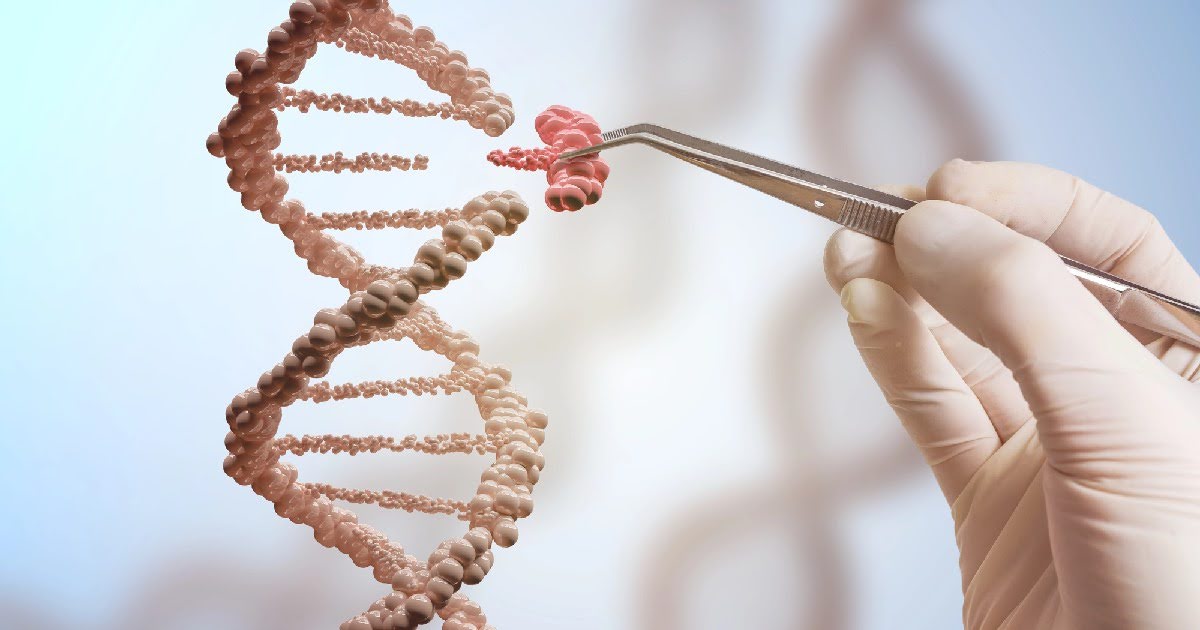Mental health disorders such as depression, anxiety, bipolar disorder, and schizophrenia affect millions of people worldwide. In the United States alone, 22.8% of adults experience a mental health disorder each year. For many individuals, treatments like therapy, medication, and holistic approaches bring meaningful relief. But the truth is, not every treatment works for everyone, and finding the right combination can take time, trial, and error.
Because mental health disorders affect so many people, and because individuals respond differently to treatment, researchers are continually exploring new, targeted approaches to better understand and address these conditions. One of the most promising frontiers is gene therapy, a medical technique that seeks to address health issues at their root cause.
Although the research is still in its early stages, gene therapy could pave the way for personalized treatments, fewer side effects, and better long-term outcomes. Imagine a future where instead of trial-and-error prescriptions, individuals receive care designed specifically for their genetic makeup. It’s a powerful and hopeful possibility that could one day revolutionize mental health treatment, and the team at Pura Vida is committed to staying at the forefront of these advances.
Let’s learn more about gene therapy and how it could be used to treat mental health disorders one day.
What Is Gene Therapy?
Gene therapy is a medical technique that involves changing or repairing a person’s genetic material to prevent or treat disease. Unlike traditional treatments that often focus on reducing symptoms, gene therapy works at the source, targeting the biological mechanisms that drive a condition. The goal is not just to manage illness, but in some cases, to create lasting or even permanent solutions.
This approach has already shown promise in treating certain cancers, rare genetic diseases, and even neurological conditions like Parkinson’s disease. When applied to mental health disorders, the focus shifts to identifying specific genes or genetic variations that may play a role in conditions like depression or anxiety. By influencing how these genes function in the brain, gene therapy could one day help restore balance to brain chemistry in a way that current medications cannot.
Why Genes Matter in Mental Health
Research shows that mental health disorders often have a genetic component. For example, a family history of depression or bipolar disorder can increase a person’s risk of developing the disorder themselves. Certain genetic variations can also affect how the brain processes neurotransmitters like serotonin or dopamine.
Also, genes may influence how people respond to medications. This field of study is called pharmacogenetics, and it looks at how a person’s genetic makeup affects the way their body processes and responds to drugs. By analyzing key genes, doctors can sometimes predict which medications and dosages are most likely to work for an individual.
Understanding these genetic factors opens up possibilities for personalized treatment designed around an individual’s unique biology rather than a one-size-fits-all method.
How Gene Therapy Could Help
While we’re not there yet, scientists believe gene therapy could one day help treat mental health disorders by:
- Repairing or Replacing Faulty Genes. If a genetic mutation contributes to a disorder, therapy could correct it, reducing or even eliminating symptoms.
- Regulating Neurotransmitters. By adjusting how genes control brain chemicals like serotonin, dopamine, or GABA, gene therapy might restore balance in the brain.
- Improving Medication Response. Some people don’t respond well to traditional medications. With gene therapy, doctors could tailor treatments so they work more effectively for each person.
- Reducing Relapse Risk. By targeting biological risk factors at the genetic level, gene therapy could help prevent recurring episodes of certain mental health disorders.
The Challenges Ahead
It’s important to note that gene therapy for mental health is still experimental. One challenge is that the brain is incredibly complex, and researchers are still learning how genes influence mental health. Gene therapy also carries risks that are important to be aware of, such as unintended genetic changes. Ethical considerations, like consent and long-term effects, also require careful attention.
For now, therapy, medication, lifestyle changes, and holistic approaches remain the most effective treatment options for mental health disorders. But the potential of gene therapy offers hope for new options in the future.
A Hopeful Future for Mental Health Care
While it may take years before gene therapy is widely available for mental health disorders, the research underway today is promising. It shows that science is moving toward more personalized, root-cause solutions, something that could one day transform how we treat conditions like depression, anxiety, or bipolar disorder.
At Pura Vida Recovery, we believe in combining today’s proven approaches with a hopeful eye on tomorrow’s breakthroughs. Recovery is always evolving, and each new discovery brings us closer to better, more effective treatment options. Contact us today at (707) 879-8432 to learn more about our comprehensive approach to treating mental health and substance use disorders.





